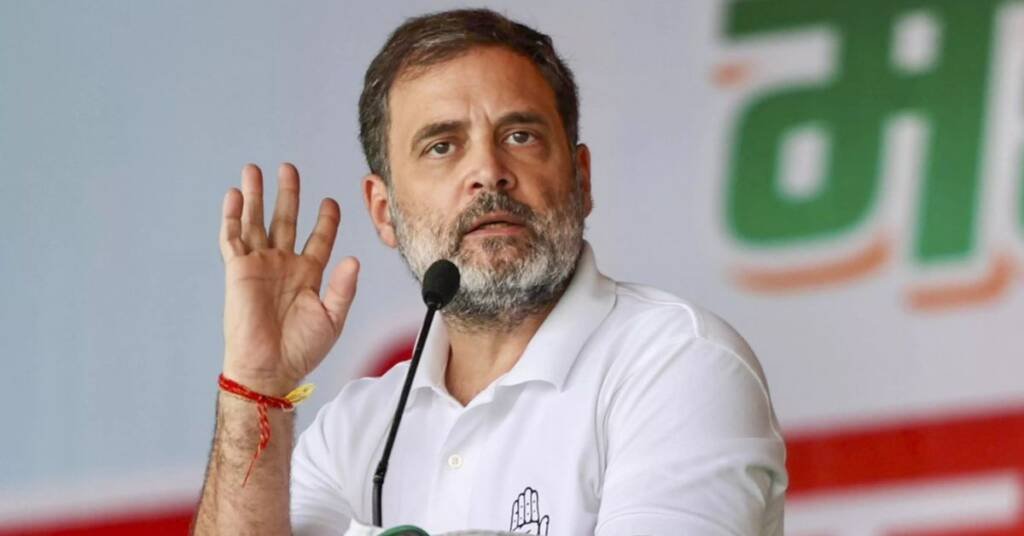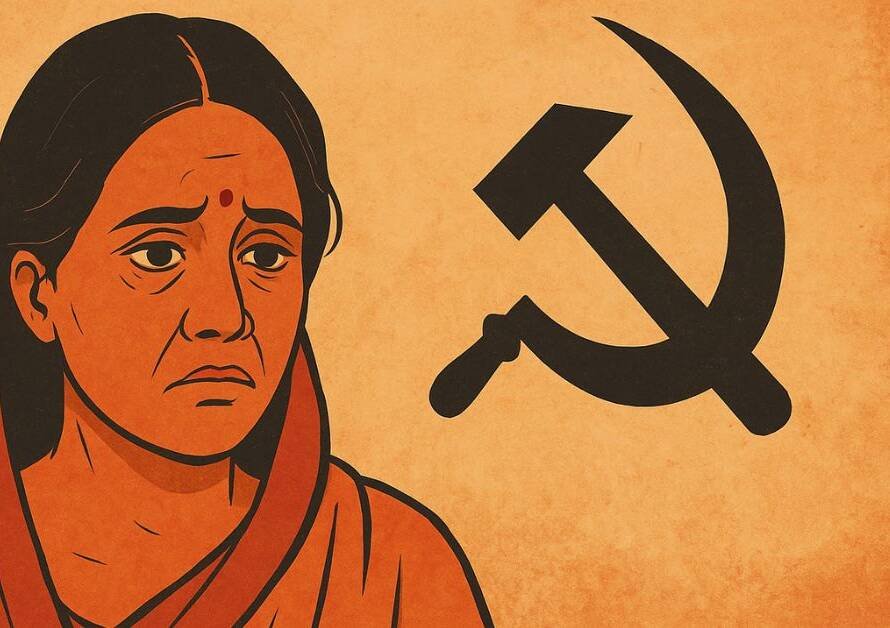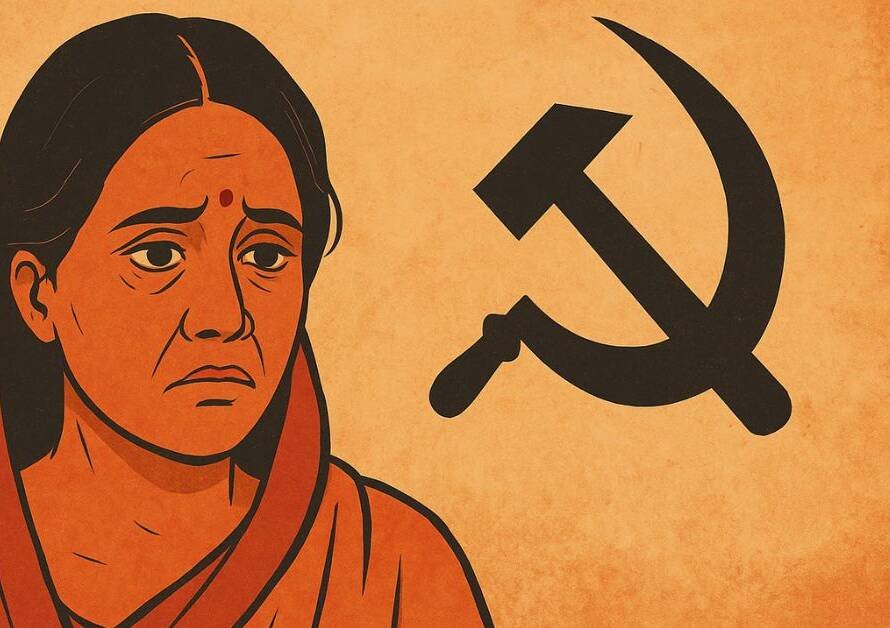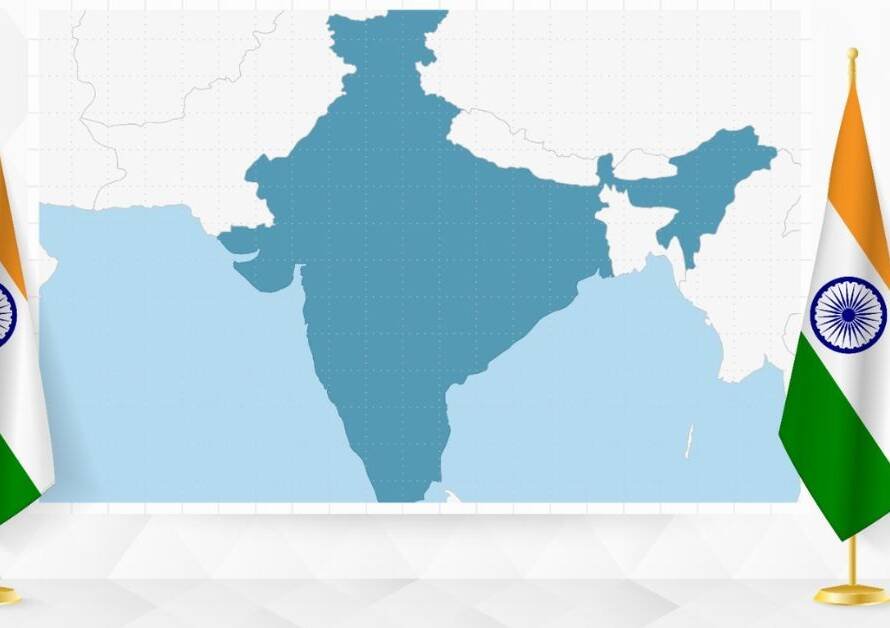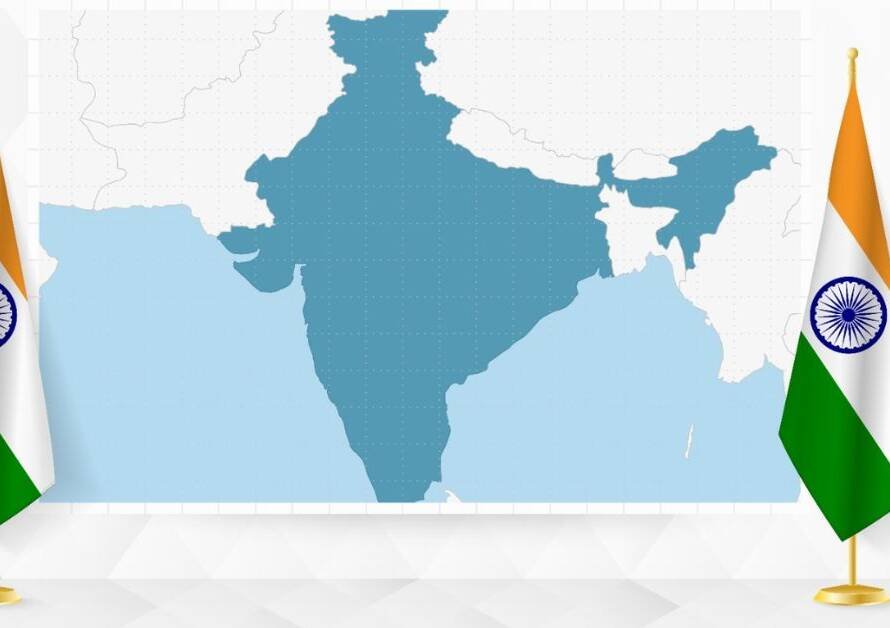1. Introduction — The Politics of Surrender
- Rahul Gandhi and the Congress Party have driven Indian politics into an unprecedented phase of ideological surrender.
- What began as political opposition to the ruling government has transformed into a systematic alignment with anti-national forces, foreign propaganda networks, and internal anarchist elements.
- The young generation — especially Gen Z — has decisively rejected this defeatist, self-destructive approach.
- They no longer see Congress as a party of ideals or patriotism but as a decaying institution clinging to outdated narratives and foreign validation.
2. The Steady Decline of Congress and Erosion of Public Trust
- Since 1984, Congress has never regained a clear majority in the Lok Sabha, symbolizing a long-term loss of credibility.
- Over the last 11 years of Modi’s governance, the Congress has opposed nearly every policy — even those rooted in national interest.
- From the abrogation of Article 370 to the Citizenship Amendment Act (CAA), Congress’s knee-jerk opposition lacked logic and national consciousness.
- Instead of constructive politics, Congress adopted a doctrine of “opposition for opposition’s sake”, often aligning itself with groups that openly challenge India’s unity and integrity.
- As a result, senior and pragmatic leaders within the party have begun to distance themselves, exposing the deep corruption and hypocrisy of Congress’s 70-year rule.
3. Foreign Influence and Anti-National Alliances
- In its desperation to attack the Modi government, Congress has collaborated with left-leaning organizations, Western media houses, and foreign lobbies that habitually defame India on global platforms.
- The BBC, certain American think tanks, and NGOs linked to the so-called “Deep State” have amplified Rahul Gandhi’s anti-India statements abroad.
- These networks attempt to project India as an authoritarian state — while conveniently ignoring its democratic vibrancy and social transformation.
- Similar to the foreign-funded protests in the U.S. and Europe, these efforts are part of a coordinated global campaign to destabilize nationalist governments in rising powers like India.
- By participating in these narratives, Congress is hurting not only its political image but also India’s long-term strategic interests.
4. The Web of Lies — Digital Disinformation and Propaganda Politics
- Rahul Gandhi’s “Narendra Surrender” slogan epitomized Congress’s shift from rational criticism to reckless disinformation.
- The party’s ecosystem — from fringe portals to social media influencers — regularly spreads fake news, doctored videos, and selective narratives.
- Instead of debating governance metrics, they resort to emotional manipulation, fear-mongering, and communal polarization.
- The result: a credibility collapse. Even traditional Congress supporters now question the authenticity of its claims.
- While the Modi government expanded welfare schemes, infrastructure, and digital inclusion, Congress tried to paint a picture of failure and fascism — a narrative now widely disbelieved by the public.
5. Youth Rejection and the Gen Z Awakening
- India’s Gen Z voters are data-driven, digitally literate, and globally aware. They have access to facts, statistics, and performance metrics — not propaganda.
- They see through media manipulation and prefer policy-driven governance over empty slogans.
- Schemes like Jan Dhan, Ujjwala, Ayushman Bharat, PM Awas Yojana, and Digital India have tangibly changed millions of lives.
- Over 55 crore new bank accounts, 12 crore homes with drinking water, 10 crore LPG connections, and 4 crore new houses are not propaganda — they are verifiable outcomes.
- Gen Z recognizes this transformation and refuses to be misled by foreign propaganda or politically motivated distortion.
- The youth’s message is clear: development, nationalism, and transparency matter more than dynastic politics.
6. Judiciary and the Crisis of Credibility
- Increasing public discourse questions the influence and bias within parts of the judiciary.
- When judges themselves acknowledge “external pressure” or ideological influence, it reflects a structural problem that requires reform.
- Justice Bhuiyan’s recent remark — that “only when courts are free from external pressure will public trust rise again” — resonates deeply with the youth and nationalist circles.
- The growing perception that certain corrupt politicians or extremists receive judicial leniency, while nationalists face scrutiny, fuels public resentment.
- If judicial reforms remain stalled, Gen Z and the nationalist youth could become increasingly disillusioned with the system.
7. The Revolt Within — Congress’s Internal Implosion
- As Congress continues its decline, senior leaders and ex-ministers are openly exposing its internal corruption, mismanagement, and appeasement politics.
- The party’s ideological confusion — soft Hindutva one day, radical secularism the next — shows the absence of conviction or clarity.
- Regional leaders are deserting the ship, forming local alliances, or joining parties that represent development and nationalism.
- The “Sinking Ship Syndrome” has taken over the Congress — even its loyal cadre no longer sees a future under Rahul Gandhi’s erratic leadership.
8. The Larger Narrative — Bharat’s Rise vs. the Old Order
- The real battle today is not between political parties but between a rising Bharat and a decaying old order.
- The nationalist model emphasizes development, integrity, defense modernization, and cultural resurgence.
- The old establishment — politicians, bureaucrats, and business lobbies who thrived on corruption — feel threatened as their empires of easy money and manipulation vanish.
- Their resentment fuels a united anti-national front involving corrupt leaders, separatists, and foreign sympathizers — all desperate to reverse India’s progress.
- But the Indian people, aware and awakened, are standing firm. The era of blind faith and dynastic control is over.
9. The Way Forward — National Consciousness and Youth Vigilance
- India’s strength now lies in its vigilant citizens, particularly the youth who reject fake news, vote-bank politics, and foreign interference.
- Every Indian must work towards strengthening institutions, demanding accountability, and resisting any political or ideological attempt to divide the nation.
- The nation’s future depends on how effectively the youth can protect India’s sovereignty — digitally, socially, and politically.
- A patriotic, informed, and united India is the strongest defense against both internal decay and external sabotage.
10. End of the Congress Era
- The Surrender Doctrine has destroyed whatever credibility Congress had left.
- Its alignment with anti-national forces, foreign propaganda, and fake narratives has isolated it politically, socially, and morally.
- The youth of India — once neutral — have now revolted intellectually and ideologically against the politics of appeasement and deceit.
- This marks the end of Congress’s relevance and the rise of a new generation committed to nationalism, development, and truth.
🇮🇳 Jai Bharat, Vandematram 🇮🇳
For old Blogs please visit our website www.saveindia108.in
To join our whatsapp Community please click
https://chat.whatsapp.com/FMr2WNIgrUVG9xK78FW5Dl?mode=r_t
To join our Telegram group please Click https://t.me/+T2nsHyG7NA83Yzdl Old Blogs are available on the telegram group also.

